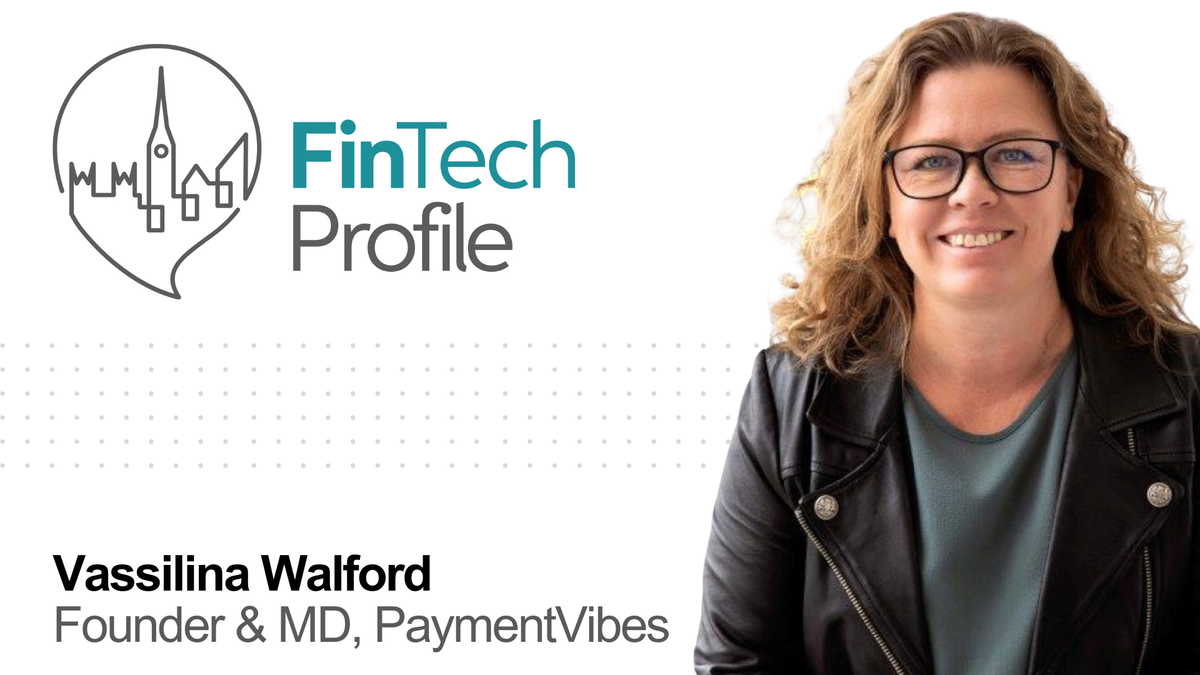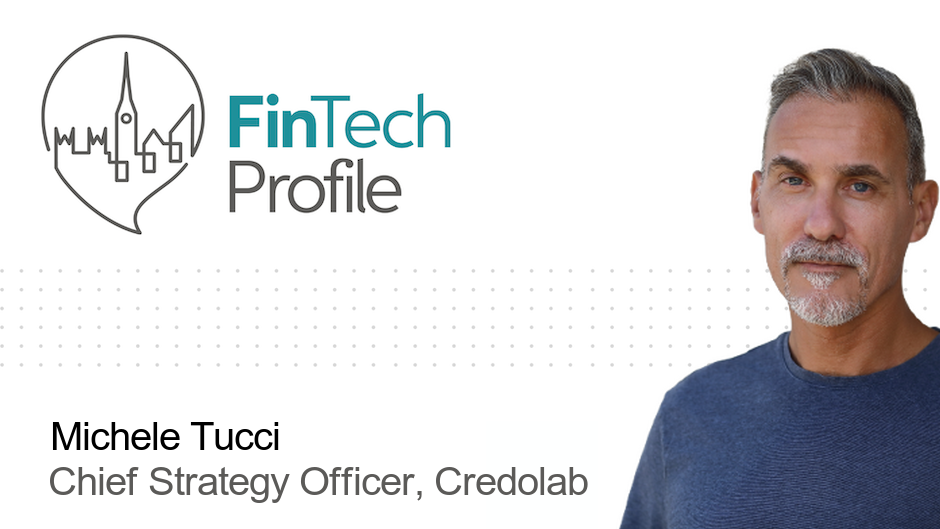Vassilina Walford, Founder & MD of PaymentVibes

Today we are meeting Vassilina Lapteva Walford, the Founder & Managing Director of PaymentVibes. The company helps retailers build their world-class payment capabilities to deliver their strategic ambitions faster.
Over to you Vassilina:
Who are you and what’s your background?
Before founding and becoming the Managing Director of PaymentVibes, I had a traditional career path in the luxury retail sector, where I held senior corporate finance positions. My last role as Head of Payments opened my eyes to the immense yet underutilised potential of the PaymentTech and FinTech worlds. I saw that many companies were not fully leveraging payments as a strategic asset. Payments are a powerful enabler, but they are complex, requiring knowledge in technology, finance, compliance, retail operations, customer support, and security.
Recognizing that many retailers struggle to keep up with these knowledge requirements, I decided to found PaymentVibes. Our mission is to help retail merchants harness payment innovation to its fullest potential. Additionally, we support startups and scale-ups in the PaymentTech space, assisting them with go-to-market and product development strategies. Often, startups have great solutions but lack the merchant perspective, as their founding teams are frequently coming from technical or industry-specific backgrounds. By bridging this gap, we help them create solutions that truly meet the needs of merchants.
Founding my own company is also a personal realization of a dream I had since my youth. I like to challenge myself, and stepping into the role of entrepreneur was one of the most fulfilling challenges I have embraced so far. Leaving the comfort of the corporate world to launch and lead my own business was not an easy decision, yet it has been immensely rewarding in numerous ways. One of the most impactful discoveries on my entrepreneurial journey has been the fantastic support from other female entrepreneurs and business leaders.
What is your job title and what are your general responsibilities?
As a founder, I wear multiple hats – CEO, COO, and CFO. In addition to advising numerous corporations and startups, I am continually on the lookout for freelancers and consultants, who can step in as needed, to assist with specific topics and projects. I also work a lot on developing strong partnerships within the payment ecosystem.
Can you give us an overview of your business?
We help retail merchants navigate the complex payment environment, whether it involves implementing new technology, selecting the right payment partners, or supporting negotiations and implementations of key payment initiatives, often as part of broader business strategies like e-commerce replatforming. Many companies don’t have a dedicated payment team, often delegating payment management to finance or e-commerce departments. However, effective payment management is a multi-disciplinary role that bridges the gap between company’s strategy and execution.
There are many untapped opportunities in payments. For instance, in a cookieless world, payment first-party data is an invaluable asset. It can measure not only the company’s financial performance but also enables personalised loyalty programs, improves understanding of customer preferences and management of marketing campaigns.
Consider a high-growth e-commerce retailer aiming to becoming omnichannel and develop a network of physical stores. Payments must be omnichannel to offer a unified customer experience and streamlined operational processes for rapid scaling. Implementing an efficient yet modular omnichannel payment foundation is key to delivering this retail strategy.
Additionally, we assist Fintech companies in shaping their value propositions to meet merchants needs and solve their problems. We also support private equity firms in their M&A assessments when investing in payment companies.
Tell us how you are funded?
So far we are self-funded relying on organic growth. As an ex-Treasurer, I am very focused on cash generation and liquidity.
What’s the origin story? Why did you start the company? To solve what problems?
There is a lot of innovation in the payment space, creating great business opportunities for retail merchants. These innovations impact both customer-facing aspects such as improving customer experience and increasing conversion and retention, and backend operations including digitising processes, enhancing controls, and ensuring compliance. What I have witnessed is that a few years ago, payments were considered a necessary but unexciting back-office activity. Today, this perspective is rapidly changing – payments are now increasingly recognised as a valuable asset by a diverse group of stakeholders from Brand and Commercial people to Finance, Logistics and Security.
As payments impact a wide range of stakeholders, each with their own perspectives, a dedicated payment role is required to manage this multidisciplinary topic effectively. However, many merchants, especially smaller companies, lack this dedicated role and often delegate payments to ‘whoever is available’, leading to a biased approach. For instance, if payments are managed by a finance department, the focus may be mainly on fees and internal controls, with focus on business development, customer experience and innovation lagging. Conversely, if payments are managed by e-commerce business unit, the emphasis would be on financial top line performance and business development, often neglecting some of the long-term fundamentals. If payments are managed by a Technology department, the priorities and budget spend would be again different.
This is why I decided to create a company that helps businesses without payment teams access top-tier payment expertise, addressing the multidisciplinary needs of the business. Our goal is to provide the benefits of specialised payment knowledge, built over years of hands-on experience on the merchant side, without requiring companies to invest in a full-time payment team.
Who are your target customers? What’s your revenue model?
Our primary customer base includes:
- Retail merchants with Direct-to-Consumer (DTC) payments – businesses that sell directly to end-consumers requiring customer-centric, efficient and secure payment capabilities.
- Startups implementing payment solutions for Retail Merchants requiring tailor-made approach to meet the needs of retail businesses
- Private equity firms investing in payment startups and requiring payment expertise as part of their M&A due-diligence
- Large consultancy firms aiming at enhancing their payment value proposition with insights and strategies from a merchant perspective.
Our revenue model is consultancy fees or/and value-generation commission (success fees).
If you had a magic wand, what one thing would you change in the banking and/or FinTech sector?
If I had a magic wand, the one thing I would change in the fintech sector is accelerating innovation in the B2B space. While B2C gets a lot of attention, B2B represents a much larger volume and holds immense potential. Drawing from my experience as a Treasurer, I am very much aware of the outdated and cumbersome processes in managing treasury payments. Modernising these legacy systems could revolutionise the industry, enhancing efficiency and accuracy in financial management for businesses.
What is your message for the larger players in the Financial Services marketplace?
Whether in B2C or B2B payments, actively seek customer feedback and integrate into your product development process early and iteratively. From my perspective managing B2B and B2C payments on the merchant side, I have frequently observed banks or financial service providers requesting feedback but failing to act on it.
Where do you get your Financial Services/FinTech industry news from?
Financial Times, Bloomberg and Payment specialised press/media
Can you list 3 people you rate from the FinTech and/or Financial Services sector that we should be following on LinkedIn, and why?
There are so many FinTech influencers and groups.
If I had to choose one, it would be The Circle – Les femmes du paiement which stands out as an exceptional group of senior, inspiring female executives in the payment industry.
What FinTech services (and/or apps) do you personally use?
My primary personal usage is P2P payment apps, digital banking or non-payment apps that integrate seamless payment functionalities.
Personally, I opt for lifestyle, shopping, travel and news apps that offer secure and effortless payment experience, including hassle-free refunds. If the payment checkout or refund process involves any friction, I quite quickly drop this app from my list.
Seamless payment experience is key to customer retention.
What’s the best new FinTech product or service you’ve seen recently?
The fintech industry is continuously evolving and introducing innovative concepts, making it challenging for individuals to stay informed and understand the nuances of these advancements.
- A great emerging EdTech in FinTech is Paypr.work [ˈpeɪpəwəːk] which bridges this knowledge gap with a unique and refreshing ability to transform complex Fintech concepts into interesting content resources and eye catching visuals that speak a thousand words.
- I also recently met the founding team of Tapbuy. Tapbuy transforms the e-commerce purchasing journey, delivering a seamless experience that significantly enhances user satisfaction. By optimizing the checkout process for both mobile and desktop, it has proven to boost online revenue for e-merchants by an impressive 10 to 35%. This innovative technology not only streamlines transactions but also drives substantial growth, making it an essential addition to any e-commerce platform aiming to maximize its potential.
- Another platform that recently stood out to me is Primer, a payment orchestration solution with no-code, offering merchants flexibility and unified payments infrastructure, bringing the entire merchant’s payments ecosystem into a single lens. This enables businesses to better manage their payments, boost payment success and unlock tangible business value without the need to go through complex technical integrations with multiple payment providers.
Finally, let’s talk predictions. What trends do you think are going to define the next few years in the FinTech sector?
When discussing predictions, I believe the focus will likely be on customer-centric authentication and security, open banking, payment orchestration, embedded payments within super-apps and digital currencies. Significant opportunities are also emerging in loyalty programs and marketing, leveraging open-banking solutions. Furthermore, B2B sector is rapidly advancing in terms of innovation and use-cases.
Thank you so much Vassilina!
Find out more about Vassilina on LinkedIn here: Vassilina Lapteva Walford and read more about her company, PaymentVibes at http://www.paymentvibes.com.




